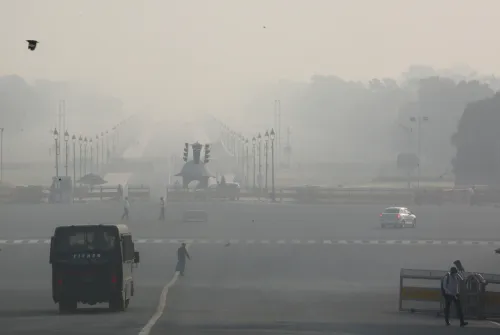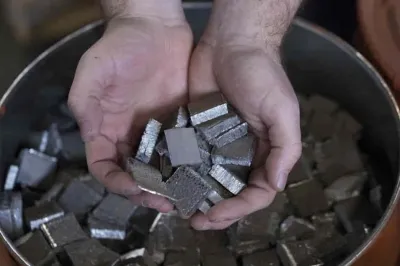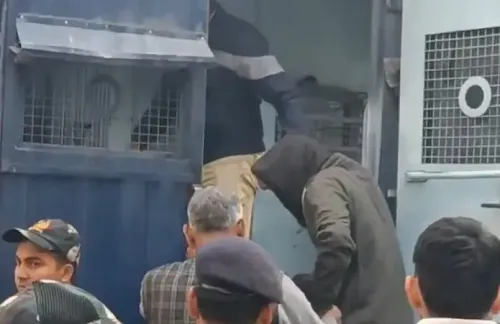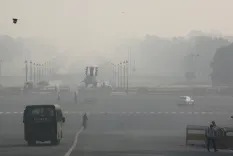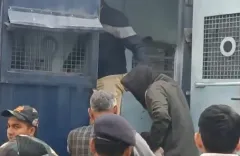What Happened on the 26/11 Attacks Anniversary? A Deep Dive into Pakistan-Sponsored Terrorism in India Since 1947
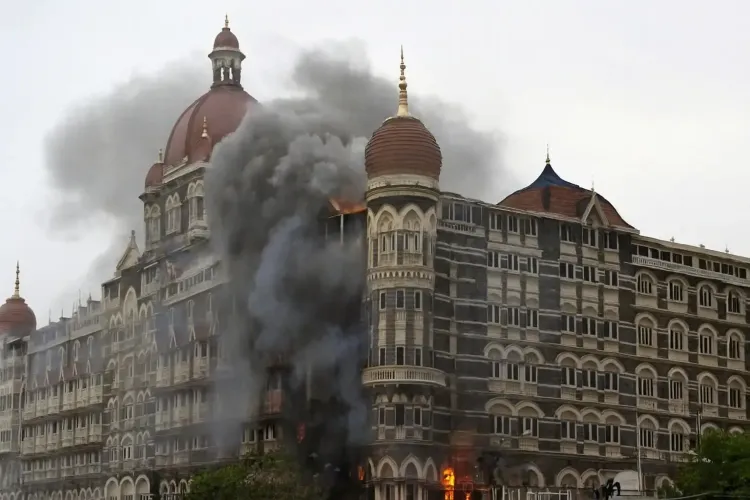
Synopsis
Key Takeaways
- 26/11 attacks marked a pivotal moment in India's fight against terrorism.
- Pakistan's ISI has been a key player in orchestrating terror attacks.
- Terrorism has evolved from traditional warfare to cyber and narco-terrorism.
- India must remain vigilant against ongoing threats.
- International cooperation is crucial in combating terrorism.
New Delhi, Nov 26 (NationPress) Today commemorates the 17th anniversary of the devastating 2008 terror attacks, a series of meticulously coordinated assaults that rattled India's financial hub and marked a dark chapter in the city's history.
This event highlighted the involvement of the Pakistani establishment in perpetuating terrorism in India. The apprehension of Pakistani national Ajmal Kasab and his damning confessions regarding Pakistan-based operatives orchestrating attacks in Mumbai laid bare their audacious intentions to instill fear across India.
As the nation honors the memories of victims, survivors, and heroic responders on this somber anniversary, we reflect on a history of Pakistan-sponsored terror incidents on Indian territory and the pivotal role of its intelligence agency, ISI, in these operations.
A detailed report from NatStrat, a New Delhi-based NGO, provides insights into the timeline of Pakistan-sponsored terror since 1947, covering events up to the anticipated Pahalgam massacre in 2025.
NatStrat, the Centre for Research on Strategic and Security Issues, has meticulously outlined numerous terror attacks associated with Pakistan-based groups such as Lashkar-e-Taiba (LeT), Jaish-e-Mohammed (JeM), and Harkat-ul-Mujahideen (HuM), frequently supported by the ISI.
The report underscores Pakistan's strategy of using terrorism as state policy against India, cataloging 26 significant terror incidents divided into five distinct phases that reflect different eras since 1947.
It documents various forms of terror orchestrated by Pakistan and its ISI—from suicide bombings and cross-border infiltrations to outright military confrontations, such as the 1999 Kargil War, evolving into patterns of narco-terrorism, information warfare, and cyber-attacks.
Key incidents like the 2001 Parliament attack and the IC-814 hijacking in 1999 were facilitated through the active collaboration of the ISI.
The initial two phases of Pakistan-sponsored terror spanned from 1947-1971 and 1972-1989. The years following India's Independence witnessed Pakistan inciting unrest in Jammu and Kashmir's Poonch, backing insurgencies in the Northeast, alongside two full-scale wars in 1965 and 1971. The second phase saw the ISI spearheading the Khalistan movement and multiple hijacking episodes, including the hijacking of an Indian Airlines flight on January 30, 1971.
In August 1984, another Srinagar-bound flight was seized by Sikh separatists and diverted to the UAE, where the hijackers surrendered.
Post-1971, after a setback from Indian forces, a temporary lull ensued until the 1990s, when the ISI reignited its malevolent agenda in Jammu and Kashmir.
Pursuing the K2 project, the ISI aimed to destabilize Punjab through the Khalistan movement, aiming to undermine India's internal security and create favorable conditions for its expansionist agenda in Jammu and Kashmir.
The 1990s were marked by a wave of bombings across the nation, including the 1993 Mumbai blasts, 1996 Lajpat Nagar blasts, 1998 Coimbatore bombings, 2000 Red Fort attack, and the notorious Kandahar hijacking of 1999.
The subsequent two decades, from the early 2000s to the Pahalgam attack in 2025, witnessed no cessation in Pakistani aggression despite India repeatedly highlighting these terror designs on international platforms.
In 2001, the Indian Parliament was assaulted by Pak-trained terrorists, followed by the Akshardham temple attack in 2002. A series of blasts in Delhi in 2005, along with the 2006 and 2008 attacks in Mumbai—including the infamous 26/11 assault which claimed nearly 175 lives, executed by ten terrorists from Lashkar—reflect a continued trend of violence.
Recent attacks, supported by the ISI, have increasingly targeted the Indian Armed Forces. Notable incidents include the Pathankot (2016), Uri (2016), Nagrota (2016), Pulwama (2019), and the anticipated Pahalgam attack (2025), indicating a shift in Pakistan's terror strategy aimed at inflicting greater damage than ever before.

